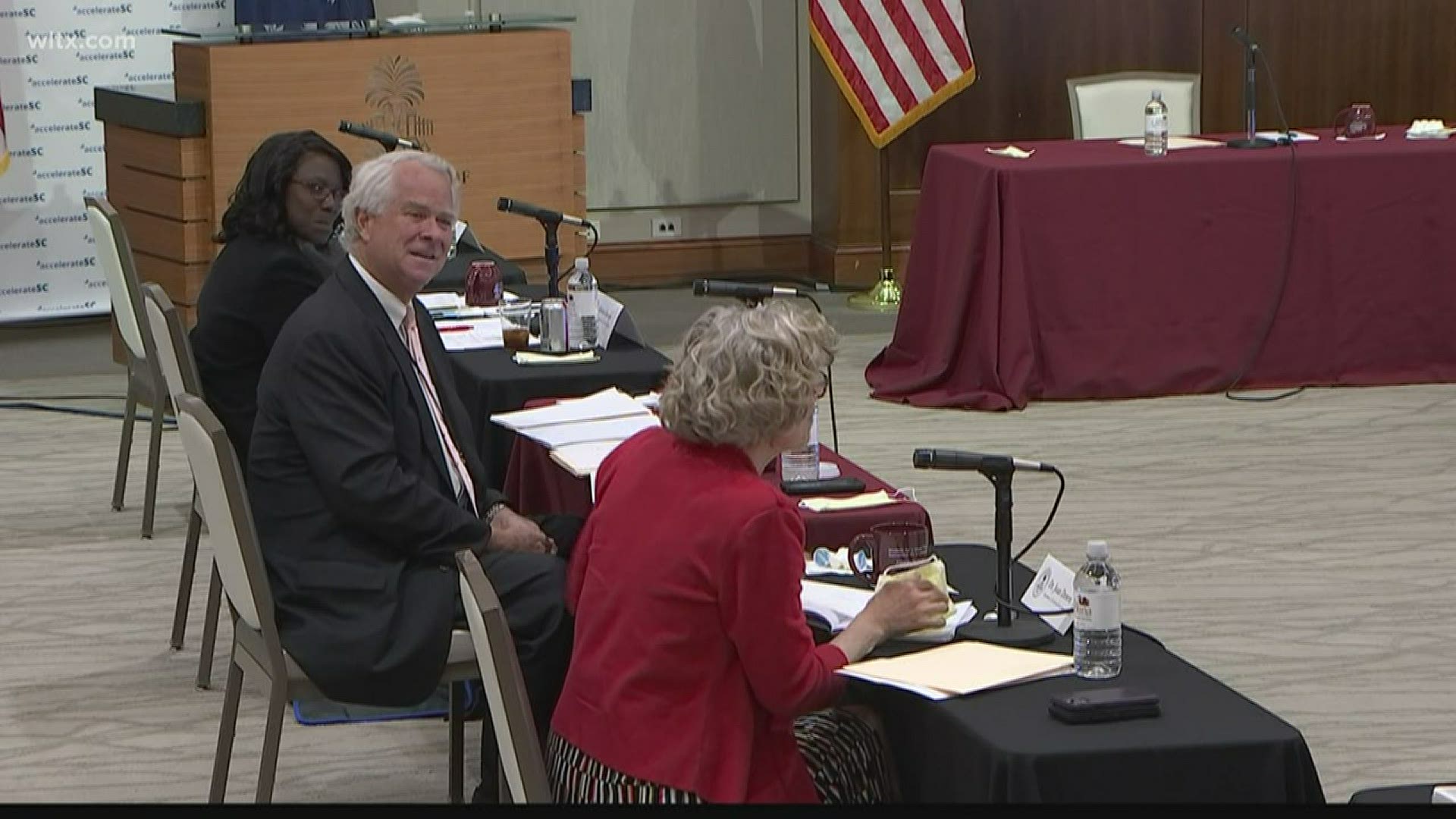COLUMBIA, S.C. — AccelerateSC's Protective Committee met on Tuesday. The group, which is made up of medical and health professionals, is tasked with identifying protective measures that will help with the workforce and public going forward.
The group met for three hours and discussed concerns and solutions for tackling the virus.
The Director of public heath for the South Carolina Department of Health and Environmental Control says they believe more masks should be used when people are out in public.
"Masking, I believe, and the CDC believes is critically important," says Dr. Joan Duwve.
Dr. Duwve explained that they are learning that the virus can be more airborne that originally thought.
"The more of us that are masking, the less likely it is that we are going to be sharing the virus with one another inadvertently, and even through the life sustaining act of breathing."
Along with masks, the team talked about the importance of testing.
"We have to have it aggregated in a matter that is reportable and actionable," says Dr. David Cole, president of the Medical University of South Carolina (MUSC). "The reason I say that is because there are a lot of moving parts as I've seen this across the state where people and industries are going to come in and say 'Hey, we can do 100 tests and we want to do this for this community.' We could have the most perfect test and if we only have one in three months, it doesn't help any of us."
He says the need for more diagnostic and antibody testing is necessary to get a wider scope of how the virus spreads and how the state will be able reopen in the future.
Testing in rural and minority communities also took center stage at the task force meeting.
"If we do not get testing or if we ignore those populations in those areas we could end up with hot spots of untested folks, re-contaminating areas," says Dr. Delores Dacosta, executive director of the South Carolina Commission on Minority Affairs. "Get folks who are undocumented tested in the Hispanic communities. In the Native American communities there is a trust issue there. How do we get that message across to them to let them know that we are here to help preserve their communities?"
"The state has found producers of face guards and eye protectors, many from companies in the Midlands. The Emergency Management Division has sent those supplies to emergency services.
However, the focus still remains on testing, and testing people who may have different symptoms.
"We know that a lot of people have headaches, they have fatigue, they have chills,but no fever," says Dr. Duwve. "So getting the word out that there are milder presentations of this illness, but we still need to make sure that we get you tested so we can do that contact racing and identify those individuals who may not have symptoms."

